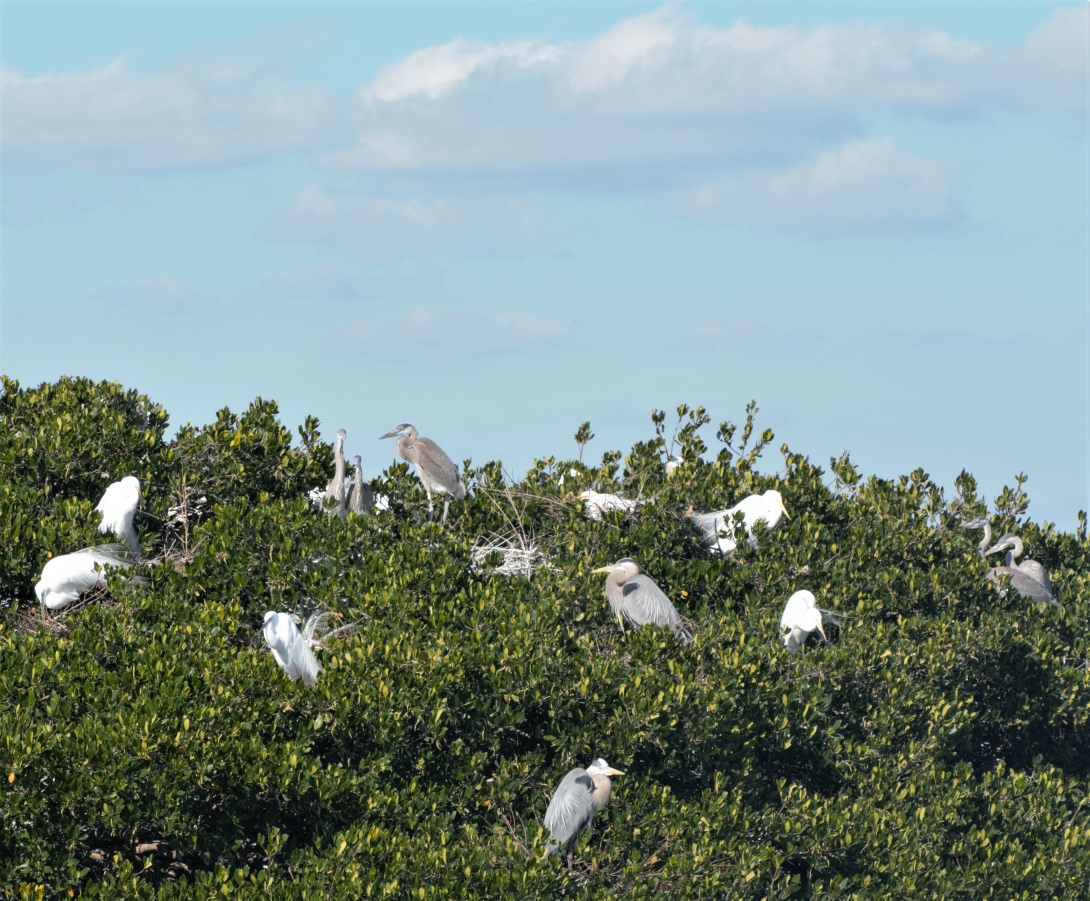Sarasota, Charlotte
1986
7,227
Open to the public 24 hours a day, dependent on public access points that are managed by other entities.
Estuary with Outstanding Florida Waterbody designation, which provides additional protection for water quality. It is designated as Class II, conditional for shellfish harvesting.
Boating, fishing, kayaking, snorkeling, wildlife viewing, wading, beachcombing, nature photography
VISITATION INFORMATION
Parking
Parking is dependent on each access location. Many of the county parks and ramps offer parking.
Boat Access/Ramps
County ramps: Indian Mound Park, Ainger Creek Park, Placida Park
Facilities
The aquatic preserve program offers no on-site facilities, but marinas and parks located along Lemon Bay will often have restrooms and areas to eat.
Contact
Arielle Taylor-Manges
941-389-5200
Charlotte.Harbor@FloridaDEP.gov
Public Access
Access Lemon Bay Aquatic Preserve through the Sarasota and Charlotte counties' parks and boat ramps, state parks or by boat/kayak.
Lemon Bay Aquatic Preserve is a shallow estuary that consists of critical seagrass and oyster habitats, along with mangrove islands that serve as bird rookery habitat. Boaters should be aware of these shallow habitats while operating and take caution not to create prop scar damage.
Water depth can be limited outside of marked channels and, for most of the waterbody, it is slow speed outside of the Intercoastal Waterway. Be aware of the boating rules and use of a boater’s guide and navigational chart are recommended.
Some of the mangrove islands also serve as nesting islands for wading and diving birds. Please respect the wildlife and keep your distance to prevent disturbance.
Be mindful of where and how you cast, and discard of fishing line properly. If your line becomes entangled, try to carefully remove and collect it before cutting the line. Abandoned and improperly disposed of fishing line poses a danger for birds and other marine life, which can become entangled and suffer.
Leave no litter and take only pictures.
History
Lemon Bay Aquatic Preserve was established in July 1986 and is managed as part of the Charlotte Harbor Aquatic Preserves system. Lemon Bay has a rich history of Native American utilization and European villages and shipwrecks. Human activities, including ditching for mosquito control, filling for development and drainage alterations, have significantly modified the natural topography and drainage patterns in the areas surrounding Lemon Bay Aquatic Preserve. Today, residents and visitors enjoy fishing, kayaking, birding, wading and beachcombing.
PUBLIC ENGAGEMENT OPPORTUNITIES
Volunteer Opportunities
Charlotte Harbor Aquatic Preserves has volunteer opportunities with their Charlotte Harbor Estuaries Volunteer Water Quality Monitoring Network monthly water quality program. Sampling sites are located throughout Lemon Bay and the rest of the Charlotte Harbor Aquatic Preserve estuaries. For more information visit DEP's Charlotte Harbor Estuaries Volunteer Water Quality Monitoring Network webpage.
Other volunteer opportunities are seasonal and program specific, please email Charlotte.Harbor@FloridaDEP.gov.
The Friends of the Charlotte Harbor Aquatic Preserves is a nonprofit citizen support organization to support the protection, conservation, restoration, management, responsible public use and the enhancement of the resources of the coastal and aquatic ecosystems within Charlotte Harbor Aquatic Preserves. You can support this important work by donating, by becoming a member, becoming a volunteer and by joining the Board.
Events
- International Coastal Cleanup is hosted by Keep Charlotte Beautiful.
- Charlotte County Boat Show.
Educational Opportunities
Local ecotour and charter boat businesses provide boat tours and fishing. Charlotte Harbor Environmental Center at Cedar Point offers seagrass wading trips in Lemon Bay Aquatic Preserve. Preserve staff provide educational materials, scientific data and outreach presentations upon request.
Conservation Efforts
Protecting the quality and extent of the natural resources within the aquatic preserves is a priority. Staff monitor water quality, seagrass, wading and diving bird nesting efforts and cultural and historical resources to understand background conditions and trends over time. Understanding changes in these ecosystems and their causes is important in order to conduct adaptive management measures. Staff conduct educational presentations and outreach activities to relay the importance of aquatic preserves’ unique resources and how to protect them.

Ongoing Research
Charlotte Harbor Aquatic Preserves has several long-term monitoring programs with over 20 years of data, including volunteer water quality monitoring program, continuous data sonde water quality, seagrass transect monitoring, colonial wading and diving bird nest monitoring and cultural and historical resource monitoring. These datasets are important to understand trends and changes in estuary health over time.
- Charlotte Harbor Aquatic Preserves continuous datasonde data can be viewed and downloaded at Florida Aquatic Preserve Program.
- Charlotte Harbor Aquatic Preserves seagrass monitoring data can be viewed at CHNEP.WaterAtlas.org.
Charlotte Harbor AP staff started July rookery surveys in Lemon Bay AP last week. The peak nesting season is winding down in this Aquatic Preserve, but there are still parent-dependent chicks in the nest, resulting in some very adorable observations. Brown pelican chicks’ downy feathers are making way for adult feathers with a heart shape forming on their wings. CHAP staff also observed an American Oystercatcher chick on one of their islands.
Each of the aquatic preserves within the Charlotte Harbor Aquatic Preserves offers a unique visit of protected submerged state lands. A visit to any of the five managed aquatic preserves and you will see healthy mangrove shorelines, seagrass beds and oyster bars. Southwest Florida’s subtropical climate is home to a variety of animals as well, in addition to migrating birds.